 W
WDaniel Abse, CBE FRSL was a Welsh poet and physician. His poetry won him many awards. As a medic, he worked in a chest clinic for over thirty years.
 W
WBrenda Irene Chamberlain was a Welsh artist, poet and novelist. She also wrote a memoir of the 15 years she spent living on Bardsey Island. She won the first two Gold Medals ever awarded by the National Eisteddfod of Wales in the Fine Art category.
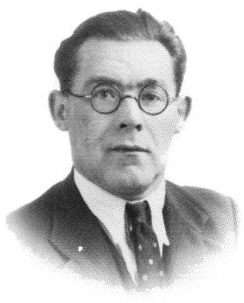 W
WIdris Davies was a Welsh poet. Born in Rhymney, near Merthyr Tydfil in South Wales, he became a poet, originally writing in Welsh, but later writing exclusively in English.
 W
WJohn Davies of Hereford was a writing-master and an Anglo-Welsh poet. He referred to himself as John Davies of Hereford in order to distinguish him from others of the same name, particularly the contemporary poet, Sir John Davies (1569–1626).
 W
WWilliam Henry Davies was a Welsh poet and writer. Davies spent a significant part of his life as a tramp or hobo, in the United Kingdom and United States, but still became one of the most popular poets of his time. The principal themes in his work are observations about life's hardships, the ways in which the human condition is reflected in nature, his tramping adventures, and the various characters he met. Davies is usually classed as one of the Georgian Poets, although much of his work is not typical of the group in either style or theme.
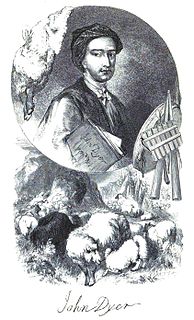 W
WJohn Dyer was a painter and Welsh poet who became a priest in the Church of England. He was most recognised for Grongar Hill, one of six early poems featured in a 1726 miscellany. Longer works published later include the less successful genre poems, The Ruins of Rome (1740) and The Fleece (1757). His work has always been more anthologised than published in separate editions, but his talent was later recognised by William Wordsworth among others.
 W
WEdward Herbert, 1st Baron Herbert of Cherbury KB was an Anglo-Welsh soldier, diplomat, historian, poet and religious philosopher of the Kingdom of England.
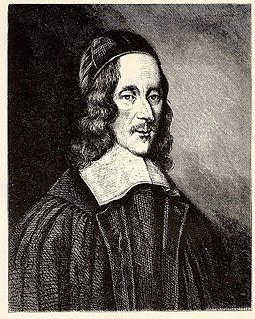 W
WGeorge Herbert was a Welsh-born poet, orator, and priest of the Church of England. His poetry is associated with the writings of the metaphysical poets, and he is recognised as "one of the foremost British devotional lyricists." He was born into an artistic and wealthy family and largely raised in England. He received a good education that led to his admission to Trinity College, Cambridge in 1609. He went there with the intention of becoming a priest, but he became the University's Public Orator and attracted the attention of King James I. He served in the Parliament of England in 1624 and briefly in 1625.
 W
WGerard Manley Hopkins was an English poet and Jesuit priest, whose posthumous fame established him among the leading Victorian poets. His manipulation of prosody – particularly his concept of sprung rhythm – established him as an innovative writer of verse, as did his technique of praising God through vivid use of imagery and nature. Only after his death did Robert Bridges begin to publish a few of Hopkins's mature poems in anthologies, hoping to prepare the way for wider acceptance of his style. By 1930 his work was recognised as one of the most original literary accomplishments of his century. It had a marked influence on such leading 20th-century poets as T. S. Eliot, Dylan Thomas, W. H. Auden, Stephen Spender and Cecil Day-Lewis.
 W
WNigel Jenkins was an Anglo-Welsh poet. He was an editor, journalist, psychogeographer, broadcaster and writer of creative non-fiction, as well as being a lecturer at Swansea University and director of the creative writing programme there.
 W
WWalter David Jones CH, CBE was both a painter and one of the first-generation British modernist poets. As a painter he worked chiefly in watercolour, painting portraits and animal, landscape, legendary and religious subjects. He was also a wood-engraver and designer of inscriptions. As a writer he was considered by T. S. Eliot to be of major importance, and his work The Anathemata was considered by W. H. Auden to be the best long poem written in English in the 20th century. Help in forming his work came from his Christian beliefs and Welsh heritage.
 W
WPatrick Jones is a Welsh poet, playwright and elder brother of Nicky Wire from Manic Street Preachers.
 W
WAlun Lewis was a Welsh poet. He is one of the best-known English-language poets of the Second World War.
 W
WRobert Minhinnick is a Welsh poet, essayist, novelist and translator. He has won two Forward Prizes for Best Individual Poem and has received the Wales Book of the Year award a record three times.
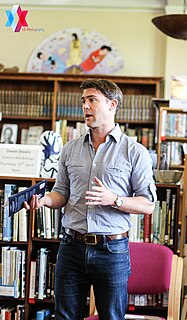 W
WOwen Sheers is a Welsh poet, author, playwright and TV presenter. He was the first writer in residence to be appointed by any national rugby union team.
 W
WDylan Marlais Thomas was a Welsh poet and writer whose works include the poems "Do not go gentle into that good night" and "And death shall have no dominion"; the "play for voices" Under Milk Wood; and stories and radio broadcasts such as A Child's Christmas in Wales and Portrait of the Artist as a Young Dog. He became widely popular in his lifetime and remained so after his premature death at the age of 39 in New York City. By then he had acquired a reputation, which he had encouraged, as a "roistering, drunken and doomed poet".
 W
WPhilip Edward Thomas was a British poet, essayist, and novelist. He is considered a war poet, although few of his poems deal directly with his war experiences, and his career in poetry only came after he had already been a successful writer and literary critic. In 1915, he enlisted in the British Army to fight in the First World War and was killed in action during the Battle of Arras in 1917, soon after he arrived in France.
 W
WRonald Stuart Thomas, published as R. S. Thomas, was a Welsh poet and Anglican priest who was noted for his nationalism, spirituality and dislike of the anglicisation of Wales. John Betjeman, in his 1955 introduction to Song at the Year's Turning, the first collection of Thomas's poetry from a major publisher, predicted that Thomas would be remembered long after he himself was forgotten. M. Wynn Thomas said: "He was the Aleksandr Solzhenitsyn of Wales because he was such a troubler of the Welsh conscience. He was one of the major English language and European poets of the 20th century."
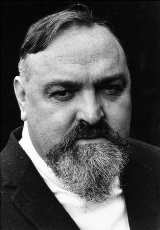 W
WHarri Webb was a Welsh poet, Welsh nationalist, journalist and librarian.